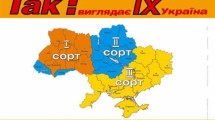Abstract
Mainstream parties across Europe have been struggling for some time to counter the appeal of the populist radical right. With the rise of the United Kingdom Independence Party (UKIP), the British Conservative Party is now facing a similar challenge. We argue that, since this is the case, it makes sense to ask whether there are lessons it can learn from other countries – in particular Austria, where the centre-right People’s Party (ÖVP) has been competing against the populist radical right (most obviously, the Freedom Party) for almost three decades. In the course of so doing, the ÖVP has tried many ways to deal with the threat posed: treating the populist radical right as a pariah; adopting some of its policies and rhetoric; inviting it into coalition government; and finally pursuing a ‘dual-track’ approach. We evaluate each strategy in turn and find that none of them has enjoyed huge or lasting success. We conclude that the Conservatives need to realise that UKIP is not so much a problem to be solved as a situation to be managed. Seeking to toughen the Tory stance on immigration and asylum is unlikely to pay electoral dividends and carries with it considerable downsides in terms of the party’s credibility and reputation, as well as in terms of public policy. Moreover, even if a more restrictive stance does not prove entirely pointless or (worse) positively counterproductive, it imposes opportunity costs the Conservative Party should think twice before paying. All this suggests the value of a comparative approach to those wanting to understand the new dynamics in British politics.
Similar content being viewed by others
Notes
Consociational democracies are characterised by a government that is vitally linked to elite cartels, dedicated to stabilising a fragmented political culture (Lijphart, 1969, p. 216). As a consequence, political conflicts are moderated by compromise or amicable agreement among elites and government officials, leading to depoliticisation of contentious issues. Government itself tends towards Grand Coalitions that strive for proportionality in the distribution of government jobs and resources.
References
Akkerman, T. (2012) Comparing radical right parties in government: Immigration and integration policies in nine countries (1996–2010). West European Politics 35 (3): 511–529.
Art, D. (2007) Reacting to the Radical Right: Lessons from Germany and Austria. Party Politics 13 (3): 331–349.
Ashcroft, M. (2013) Small island. Public opinion and the politics of immigration, http://lordashcroftpolls.com/wp-content/uploads/2013/08/LORD-ASHCROFT-Public-opinion-and-the-politics-of-immigration2.pdf, accessed 14 October 2013.
Bale, T. (2003) Cinderella and her ugly sisters: The mainstream and extreme right in Europe’s bipolarising party systems. West European Politics 26 (3): 67–90.
Bale, T. (2006) PR Man? Cameron’s conservatives and the symbolic politics of electoral reform. Political Quarterly 77 (1): 28–34.
Bale, T. (2008) Turning round the telescope. Centre-right parties and immigration and integration policy in Europe. Journal of European Policy 15 (3): 315–330.
Bale, T. (2012) The Conservatives since 1945: The Drivers of Party Change. Oxford University Press.
Bale, T. (2013) More and more restrictive – But not always populist: Explaining variation in the British Conservative Party’s stance on immigration and asylum. Journal of Contemporary European Studies 21 (1): 25–37.
Bale, T., Hampshire, J. and Partos, R. (2011) Having one’s cake and eating it too: Cameron’s conservatives and immigration. Political Quarterly 82 (3): 398–406.
Bale, T. and Partos, R. (forthcoming) Why mainstream parties change policy on migration: A UK case study – The conservative party, immigration and asylum, 1960–2010. Comparative European Politics.
Bauböck, R. (1996) Nach Rasse und Sprache verschieden. Migrationspolitik in Österreich von der Monarchie bis heute, in Institute for Advanced Studies (Series ed.) Political Science Series, Vol. 31. Vienna, Institute for Advanced Studies.
Bauböck, R. and Perchinig, B. (2006) Migrations – und integrationspolitik. In: H. Dachs et al (eds.) Politik in Österreich. Das Handbuch. Vienna, Austria: Manz, pp. 726–742.
Carter, E. (2005) The Extreme Right in Western Europe: Success or Failure? Manchester, UK: Manchester University Press.
Debus, M. (2005) Annähern oder distanzieren? Strategische positionierung von FDP, VdU und FPÖ zwischen 1949 und 2002. Österreichische Zeitschrift für Politikwissenschaft 34 (4): 413–430.
de Lange, S. (2007) A new winning formula? The programmatic appeal of the radical right. Party Politics 13 (4): 411–435.
de Lange, S. (2012) New alliances: Why mainstream parties govern with radical right-wing populist parties. Political Studies 60 (4): 899–918.
Downs, W.M. (2001) Pariahs in their midst: Belgian and Norwegian parties react to extremist threats. West European Politics 24 (3): 23–42.
Eatwell, R. (2000) The rebirth of the ‘extreme right’ in Western Europe? Parliamentary Affairs 53 (3): 407–425.
Ford, R. and Goodwin, M.J. (2014) Revolt on the Right: Explaining Support for the Radical Right in Britain. Abingdon, UK: Routledge.
Götzelmann, A. (2010) Die Rolle staatlicher akteurInnen in der österreichischen integrationspolitik. In: H. Langthaler (ed.) Integration in Österreich. Sozialwissenschaftliche Befunde. Innsbruck, Austria: Studienverlag, pp. 181–208.
Goodwin, M.J. (2007) The extreme right in Britain: Still an ‘Ugly Duckling’ but for how long? The Political Quarterly 78 (2): 241–250.
Goodwin, M. (2013) Forever a False Dawn? Explaining the Electoral Collapse of the British National Party (BNP). Parliamentary Affairs, Online first.
Gruber, O. (2014) Campaigning in Radical Right heartland. The electoral politicization of immigration and ethnic relations in Austrian general elections, 1971–2013. Münster, Berlin, Germany: Vienna, Austria; Zurich, Switzerland; London, UK: LIT Verlag.
Gruber, O. and Mattes, A. (forthcoming) Das Narrativ ‚ Integration durch Leistung‘. Neuansatz staatlicher Integrationspolitik? In: K. Schnebel and G. Schwellnus (eds.) Minderheiten im Dilemma zwischen Selbstbestimmung, Integration und Segregation. Wiesbaden, Germany: VS Verlag.
Hampshire, J. and Bale, T. (forthcoming) New administration, new immigration regime: Do parties matter after all? A UK case study. West European Politics.
Harmel, R. and Svasand, L. (1997) The influence of new parties on old parties’ platforms: The cases of the progress parties and the conservative parties of Denmark and Norway. Party Politics 3 (3): 315–340.
Heinisch, R. (2004) Die FPÖ – Ein Phänomen im Internationalen vergleich. Erfolg und misserfolg des Identitären rechtspopulismus. Österreichische Zeitschrift für Politikwissenschaft 33 (3): 247–261.
Kitschelt, H. (1995) The Radical Right in Western Europe. Ann Arbor, MI: University of Michigan Press.
Langthaler, H. and Trauner, H. (2009) Das österreichische Asylregime unter besonderer Berücksichtigung der Rolle zivilgesellschaftlicher Organisationen. SWS-Rundschau 49 (4): 446–467.
Lijphart, A. (1969) Consociational democracy. World Politics 21 (2): 207–225.
Luther, K.R. (2000) Austria: A democracy under threat from the freedom party? Parliamentary Affairs 53 (3): 426–442.
Luther, K.R. (2003) The self-destruction of a right-wing populist party? The Austrian parliamentary election of 2002. West European Politics 26 (2): 136–152.
Luther, K.R. (2011) Of goals and own goals: A case study of right-wing populist party strategy for and during incumbency. Party Politics 17 (4): 453–470.
Lynch, P. and Whitaker, R. (2012) Rivalry on the right: The conservatives, the UK Independence Party (UKIP) and the EU issue. British Politics 8 (3): 285–312.
Meguid, B.M. (2008) Party Competition between Unequals. Strategies and Electoral Fortunes in Western Europe. Cambridge, UK: Cambridge University Press.
Minkenberg, M. (2002) The new radical right in the political process: Interaction effects in France and Germany. In: M. Schain, A. Zolberg and P. Hossay (eds.) Shadows over Europe: The Development and Impact of the Extreme Right in Western Europe. New York: Palgrave Macmillan, pp. 245–268.
Mudde, C. (2013) Three decades of populist radical right parties in Western Europe: So what? European Journal of Political Research 52 (1): 1–19.
Müller, W.C. (1994) The development of Austrian party organizations in the post-war-period. In: R.S. Katz and P. Mair (eds.) How Parties Organize. Change and Adaption in Party Organizations in Western Democracies. London: Sage, pp. 51–79.
Müller, W.C. and Steininger, B. (1994) Party organisation and party competitiveness: The case of the Austrian people’s party, 1945–1992. European Journal of Political Research 26 (1): 1–29.
Münz, R., Zuser, P. and Kytir, J. (2003) Grenzüberschreitende Wanderungen und ausländische Wohnbevölkerung. Struktur und Entwicklung. In: H. Fassmann and I. Stacher (eds.) Österreichischer Migrations – und Integrationsbericht. Demographische Entwicklungen – Sozio-ökonomische Strukturen – Rechtliche Rahmenbedingungen. Klagenfurt/Celovec, Austria: Drava, pp. 20–61.
Murphy, A. (2004) The rise of the Austrian freedom party in the 1990s: A culturalist approach. Österreichische Zeitschrift für Politikwissenschaft 33 (3): 297–307.
Norris, P. (2005) Radical right. Voters and Parties In The Electoral Market. Cambridge, UK: Cambridge University Press.
Pelinka, A. (2013) Der Preis der Salonfähigkeit. Österreichs Rechtsextremismus im internationalen Vergleich. Dokumentationsarchiv des österreichischen Widerstandes, http://www.doew.at/cms/download/bvfs9/pelinka_rechtsextremismus-1.pdf, accessed 17 July 2013.
Pelinka, A. and Rosenberger, S. (2000) Österreichische Politik. Grundlagen – Strukturen – Trends. Vienna, Austria: WUV.
Perchinig, B. (2006) Einwanderungs- und Integrationspolitik. In: E. Tálos (ed.) Schwarz-Blau: Eine Bilanz des “Neu-Regierens”. Vienna, Austria: LIT Verlag, pp. 295–311.
Pettigrew, T.F. (1998) Reactions toward the new minorities of Western Europe. Annual Review of Sociology 24 (1): 77–103.
Picker, R., Salfinger, B. and Zeglovits, E. (2004) Aufstieg und Fall der FPÖ aus der Perspektive der Empirischen Wahlforschung: Eine Langzeitanalyse (1986–2004). Österreichische Zeitschrift für Politikwissenschaft 33 (3): 263–279.
Pitchford, M. (2011) The Conservative Party and the Extreme Right 1945–1975. Manchester, UK: Manchester University Press.
Rosenberger, S. and Seeber, G. (2011) Kritische Einstellungen: BürgerInnen zu Demokratie, Politik, Migration. In: R. Polak (ed.) Zukunft. Werte. Europa. Die Europäische Wertestudie 1990–2010: Österreich im Vergleich. Vienna, Austria; Köln, Weimar, Germany: Böhlau, pp. 165–190.
Schain, M.A. (2002) Shadows over Europe: The Development and Impact of the Extreme Right in Western Europe. New York, NY: Palgrave Macmillan.
Schumacher, S. (2007) Die Neuorganisation der Zuwanderung durch das Fremdenrechtspaket 2005. In: Fassmann Heinz (ed.) 2. Õsterreichischer Migrations- und Integrationsbericht. Klagenfurt/Celovec, Austria: Drava, pp. 74–82.
Sperl, G. (2000) Der Machtwechsel. Österreichs Politische Krise zu Beginn des 3. Jahrtausends. Vienna, Austria: Molden.
van Spanje, J. (2010) Contagious parties: Anti-immigration parties and their impact on other parties’ immigration stances in contemporary Western Europe. Party Politics 16 (5): 1–24.
van Spanje, J. and van Der Brug, W. (2007) The party as pariah: The exclusion of anti-immigration parties and its effect on their ideological positions. West European Politics 30 (5): 1022–1040.
Webb, P. (2000) The Modern British Party System. London: Sage.
Webb, P. and Bale, T. (forthcoming) Why do Tories defect to UKIP? Conservative Party members and the temptations of the populist radical right. Political Studies.
Author information
Authors and Affiliations
Corresponding author
Rights and permissions
About this article
Cite this article
Gruber, O., Bale, T. And it’s good night Vienna. How (not) to deal with the populist radical right: The Conservatives, UKIP and some lessons from the heartland. Br Polit 9, 237–254 (2014). https://doi.org/10.1057/bp.2014.7
Published:
Issue Date:
DOI: https://doi.org/10.1057/bp.2014.7




